

salmoseine
-
Posts
132 -
Joined
-
Last visited
Content Type
Profiles
Forums
Events
Gallery
Store
Posts posted by salmoseine
-
-
I prefer GOES Image Viewer: https://www.star.nesdis.noaa.gov/GOES/sector.php?sat=G16§or=ne , the Northeast sector . It's been very reliable and updates every 5 mins. I use the Geo Color panel, 2400 X 2400... place cursor on resulting image to zoom/expand area of interest. Animation loop is insightful. For a wider look, I use https://www.star.nesdis.noaa.gov/GOES/sector.php?sat=G16§or=cgl , the Great Lakes sector.
-
-
Sea lampreys... ineffective treatment by DEC for multiple years. Poor conditions when lampricide was applied.
-
 1
1
-
-
https://www.windalert.com/windlist/14612
https://www.sailflow.com/map#43.28,-77.186,9,1
https://www.ndbc.noaa.gov/station_page.php?station=olcn6
https://www.ndbc.noaa.gov/station_page.php?station=rprn6
https://www.ndbc.noaa.gov/station_page.php?station=osgn6
https://www.ndbc.noaa.gov/station_page.php?station=45135
-
 1
1
-
 1
1
-
-
3 hours ago, HB2 said:
Perfect time for big bright stick or body baits with a lot of wobble and rattles .
The fish can't hit what they can't see .
" The fish can't hit what they can't see " <= they do have a rather impressive feature, the lateral line, that can detect movement, vibration, locate prey in the surrounding water without the aid of sight
-
4 hours ago, Bosun Cowboy said:
I found a Gary D Rig Someone lost on 390 yesterday !
Sent from my iPhone using Lake Ontario UnitedUmmmmm.... likely discarded
-
-
4 minutes ago, L&M said:
The highlight in the quote above pretty much sums it up in a nut shell. "now that the navigation season has concluded. "
Yup... Gambler nailed it... " Why cut back outflows starting on August 21st if Montreal wasn't flooding, the Ottawa wasn't flooding and ice was not forming. It is simple, shipping. "
-
 1
1
-
-
" The International Lake Ontario-St. Lawrence River Board says it will be increasing outflows on Lake Ontario over the next few days in an effort to remove more water. The board says outflows will be increased to more than 10,000 cubic meters per second – compared to its current rate of 8,850 cubic meters per second – now that the navigation season has concluded. " https://13wham.com/news/local/outflow-levels-to-be-increased-for-lake-ontario-high-inflows-expected-in-2020
-
48 minutes ago, iiwhistlerii said:
As it has been maintained. The lake has dropped incredibly. Erie is still 30 inches over avg and Ontario is only 10 inches higher than normal. Wouldnt that tell you we are more than "maintaining".
Sent from my SM-G965U using Tapatalk
"Ontario is only 10 inches higher than normal". What data are you using...? Is the US Army Corps of Engineers data invalid, ? Their most recent data indicates that Ontario is currently 1.54 feet above the Long Term Avg => 18.5 inches. Ate you using some new norma, ? Please explain...
-
-
Famous Upstate NY hunting guide indicted again for illegal waterfowl hunting
Updated Dec 20, 8:11 PM;Posted Dec 20, 7:57 PM-- Following a year of waiting, William Saiff III, a well-known North Country outdoors guide and outdoors TV personality, has been indicted again on charges connected with illegally baiting and shooting protected waterfowl.
-
For lake caught salmon, preferably still silver, I've had good success preparing the fillets as GAMBLER noted, but rather than marinating, place strips of bacon on both sides of the fillets, then grill (lump charcoal) in a hinged basket. Keep the heat reasonably low for a slow cook... the bacon bastes the salmon, allowing the the oil in the salmon to cook off slowly (important). Based on a culinary technique known as larding.
-
Under public access.... Woodville launch: https://www.dec.ny.gov/outdoor/25578.html
-
The boat lunch will open at 9 a.m. Friday, July 26: https://www.whec.com/news/port-of-rochesters-boat-launch-to-reopen-friday/5433744/?cat=565
-
-
-
-
-
-
-
-
-

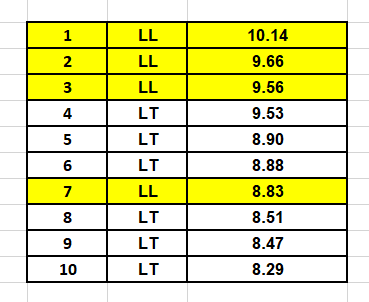
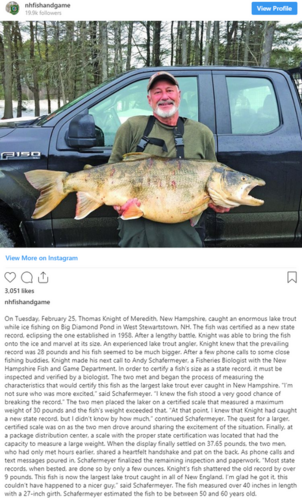
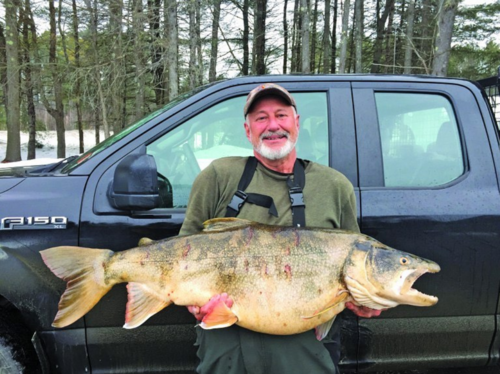
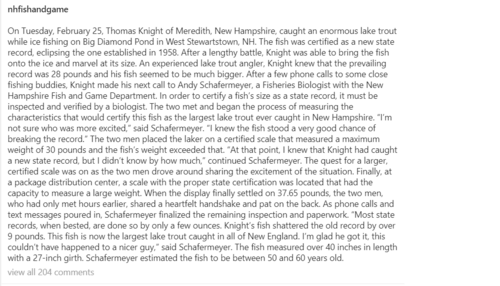
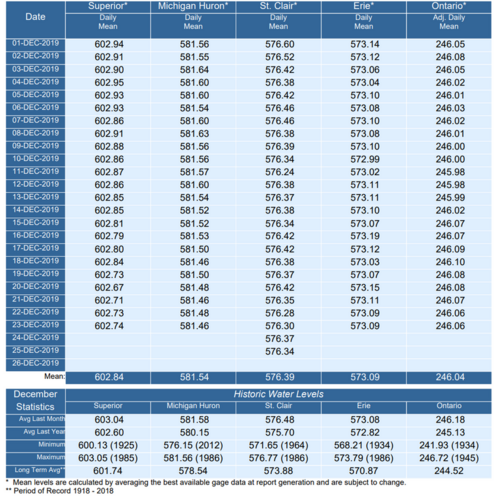
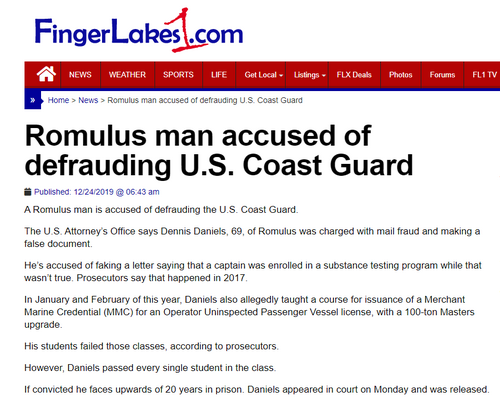
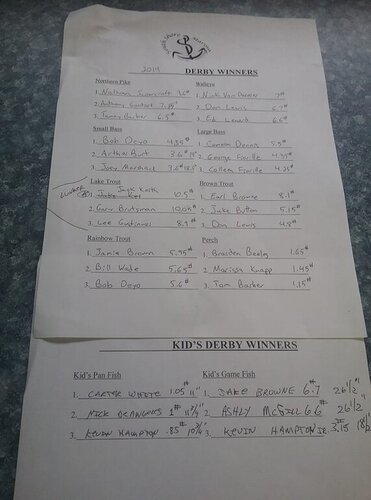
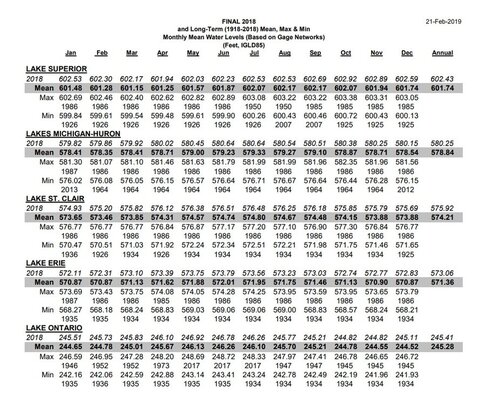
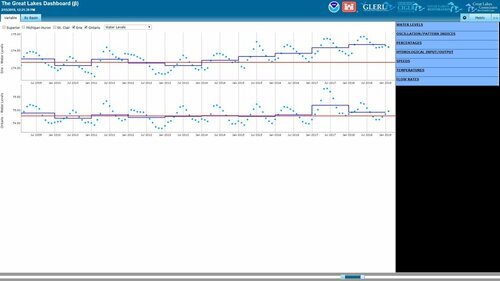
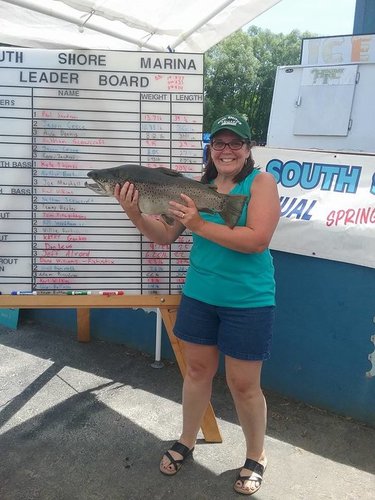
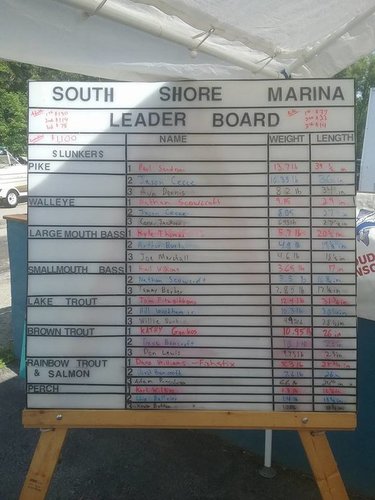
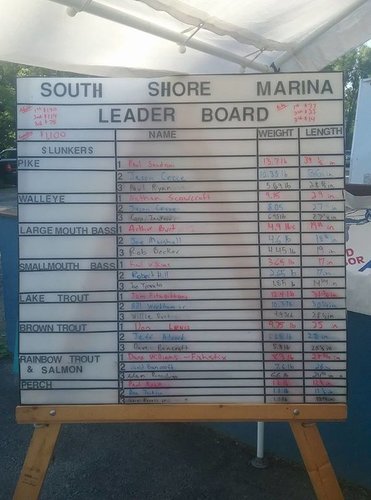
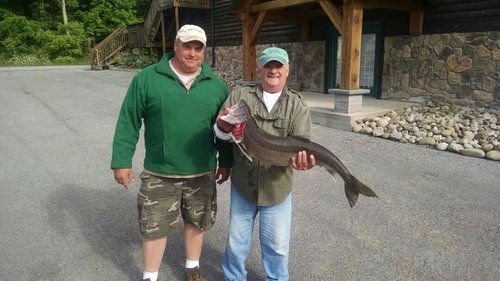
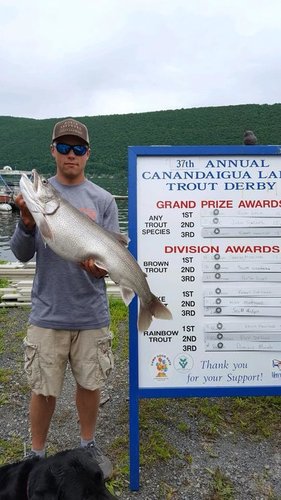
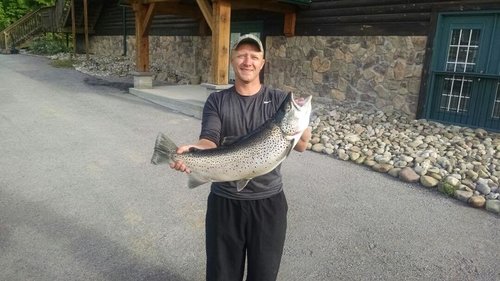
Dumb Question
in Finger Lakes Discussion
Posted
I think two different phenomenon are being confused in this discussion: "Upwelling" vs "Turnover". Upwelling is quite evident on Lake Ontario, where as an example, a strong persistent southerly wind can push warm upper depth water offshore, to be replaced by cold water from greater depths. This also occurs in the Finger Lakes when strong North or South wind patterns prevail, just not as dramatic. The term "Turnover" is usually applied to lake water that is heating rapidly in late Spring, early Summer. As the warmer waters reach greater depths, there is a mixing or "turnover" of water that will precede stratification, thermocline formation. This happens quite prominently in our Finger Lakes. I am most familiar with the Canandaigua Lake cycle: by mid-June the "turnover" is apparent, most noticeable as decomposing fish (on the cold bottom) are elevated to the surface as decompostion/gasing accelerate due to warming/mixing/ turnover. A similar process occurs in the Fall... as surface/upper water cools, their density increases and begins to sink/mix with lower layers of water. For Canandaigua Lake, this process usually begins in early October, pushing the thermocline deeper as the processing continues. You may see nearly uniform temperature (~60 degrees) until depths of ~80 feet before a temperature break. This will continue until the water temperature reaches the mid to lower 50 degree range, when the fall mixing,"Turnover" completes and the thermocline disappears. This normally occurs for Canandaigua by late October. A likely better explanation: https://www.waterontheweb.org/under/lakeecology/05_stratification.html